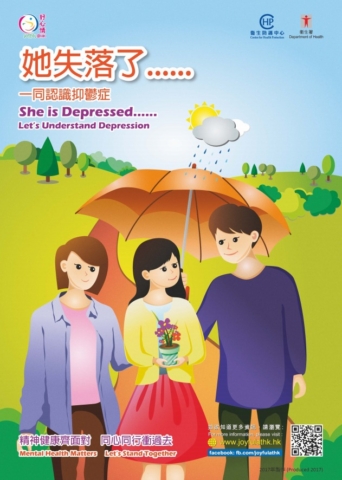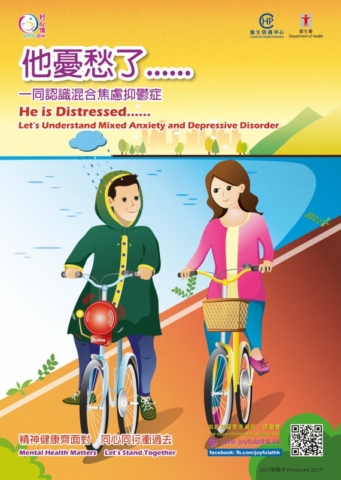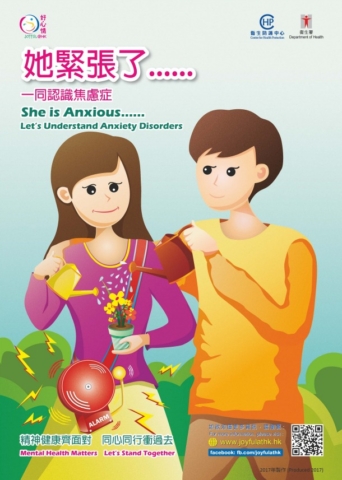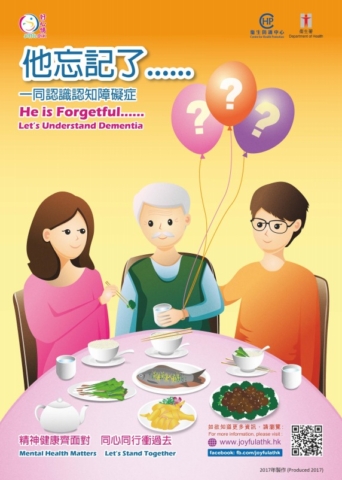02-10-20
Mental health is about how we, driven by our brain, act and react cognitively, behaviourally and emotionally. In other words, it affects how we think, feel and behave in our daily life. Every day, most of us stay fit and normal: we can sleep, wake up, work, talk to friends, recognize our family members and know the way home. All are taken by us for granted. The absence of a mental disorder, in reality, can be a luxury for some people suffering. When our mental health is in trouble, it harms our daily living, relationship with others and even physical health such as insomnia. Looking after our mental health and avoiding conditions such as stress, depression and anxiety will be very important if we want to preserve the ability to enjoy life.
I have chaired the Mental Health Review Tribunal in Hong Kong for more than 2 years. I went to the following places almost once a week. The Tribunal is an independent body established to safeguard the rights of mental patients being detained in mental hospitals such as Castle Peak Hospital, mental wards of ordinary hospitals such as Kowloon Hospital and mental prison such as Siu Lam Psychiatric Centre. We hear cases which are either applications by the patients or referrals by an institution in respect of detainees and will decide if such persons can be discharged from the institutions back to community. The Tribunal listens to many parties including a patient, his family members, the treatment doctor and responsible social worker. Many factors are taken into account and the fundamental consideration is: will the discharge constitute a danger, or a risk of such danger, to the safety and health of the patient himself or protection of the public?
Happiness of a mental patient, after getting well and the discharge, can easily be shared by the Tribunal. The worst thing is that we cannot share, as much as we want to share, the pain of a patient who is still required to receive medical treatment and unable to return home. The saddest moments are when the patients did not realize the circumstances that they were facing. For some severe mentally retarded inmates, they would likely spend the rest of their lives in mental hospital.
Hong Kong is getting more and more apathetic as a society. There is nothing warmer than someone who goes out to make life kind for others. If you can go out and make some good things happen, you will fill Hong Kong with hope, and will also fill yourself with hope because your life is more meaningful than others. It is sad to know that a large number of people in Hong Kong are mentally suffering. How can a man or woman in the street join our meaningful cause? You can contribute in 3 ways:
- We all possess a powerful tool to aid someone: listening. For a mental patient or man experiencing symptoms of a mental health crisis, an empathetic listener can be calming and healing. When we listen, we try to imagine what it feels like to be the person in front of us.
- Negative stereotypes are often associated with mental illness. We should stop labelling a mental patient. The labelling is a cruelty to those afflicted and their relatives. While we dislike discrimination against ourselves, we must learn to recognise that mental illness is just a common health issue that you and I may face at any time.
- When your relative or friend is confused and fraught with emotions, you should push him to seek the perspectives of a doctor or social worker. ‘Ask for help’ is a must because mental illness may get worse or become out of control quickly.
In July 2020, Hong Kong Government launched a public awareness campaign called ‘Shall We Talk’ with the objective of promoting better understanding about mental health and eliminating stigmatization towards persons with mental health needs. The campaign spokesman is the popular singer Eason Chan who said that he suffered from the depression disorder in 2012.
Learning a few common types of mental health problems is useful. The following is not an exhaustive list:
- mixed anxiety and depressive disorder—like being over-worried, persistently down and difficult to fall asleep.
- psychosis—like having hallucinations in perception and delusions in thinking.
- depression—like feeling worthless or desperate and at the same time, losing interest in things that one used to like.
- anxiety disorder—like anticipating an impending danger or being in a state of constant panic.
- autism—like having difficulty in social interaction and repetitive behaviours.
- bipolar disorder—like displaying depressive and manic symptoms simultaneously.
- ADHD—like hyperactivity, impulsiveness and inattention.
Mental health is important for everyone. When you know anyone is facing a mental health challenge, just tap him or her on the shoulder and utter softly, “My friend, you are not alone! Shall we talk?”









